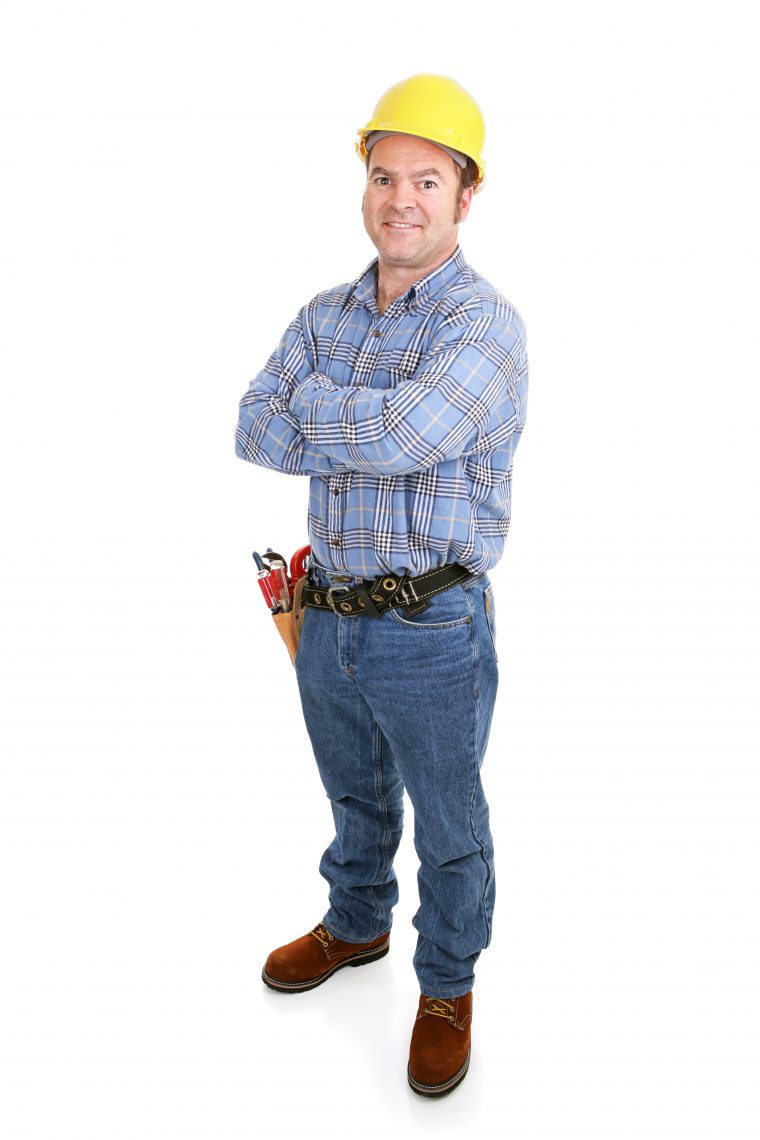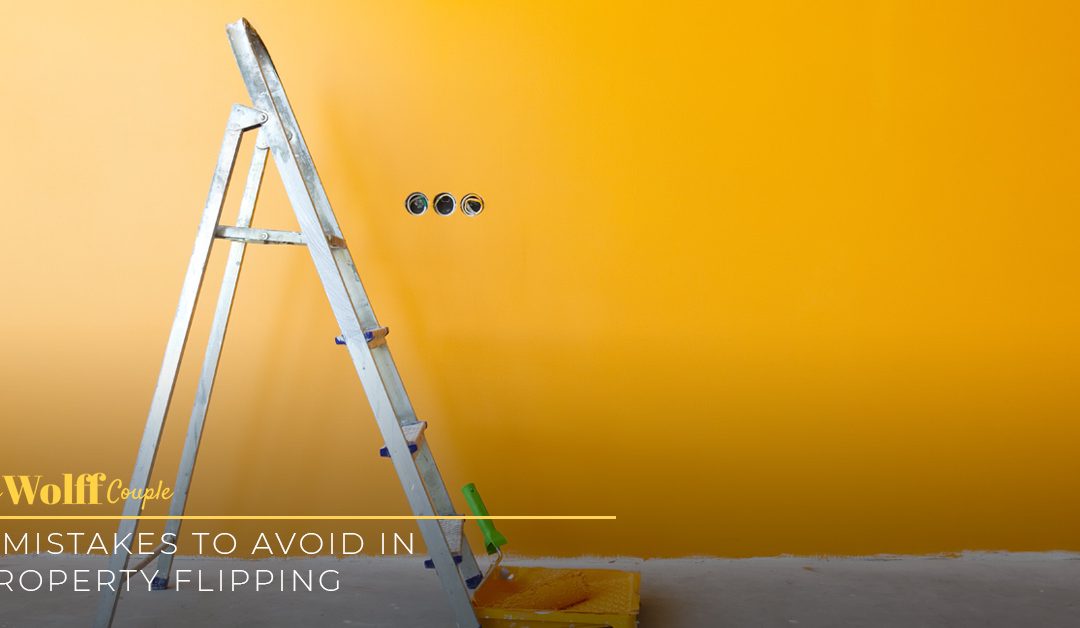Real estate investment is an exciting, growing industry. Especially with the rising popularity of house flipping TV shows, property flipping is an increasingly attractive investment strategy. Ready to take the plunge? Be careful! There are a lot of possible pitfalls that could end your real estate investment career before it begins. Learn the best tips and tricks from the Wolff Couple, who have more than 50 years of combined experience in real estate and thousands of students across the country who have become successful real estate investors in their own right. Continue reading for the eight worst mistakes you can make when property flipping, and explore the Wolff Couple’s investment training DVDs and marketing systems to learn it all!
What is Property Flipping?
First things first: what is property flipping? It’s a real estate investment strategy where the investor buys a fixer-upper home, makes improvements, and then sells that home for a profit. It seems like a straightforward task – buy low and sell high – but the Wolffs know that things can get muddy in the time between sales. Here’s what to avoid when buying and flipping homes:
1. Spending Too Much Time
The most important thing to keep in mind when you are flipping houses is that the longer you own the property, the more it will costing you. You need to cover the mortgage, utilities, taxes, insurance, and more while it’s in your ownership. A half-finished project won’t earn you any money if you let it languish for months at a time. You should choose speed over maximum profit if it comes down to it — stay on top of your renovation plans and stick to your plan.
2. Not Spending Enough Time
The fact that time is money in property flipping should not push you to do a bad job. While you should choose speed over maximum profit, you should not prioritize speed over doing a good job. Take the time to do it right, whether you’re still finding the right property to buy, working on repairs, or finally selling the property. All the repairs you make need to be up to code and you should schedule an inspection to double-check that you are in compliance. The biggest mistake you can make is quitting before you’re done and hoping the buyer can imagine what the house will look like once it’s finished.
3. Getting Too Emotional
Buying and flipping homes is a business, and you should keep that in mind every step of the way. The first hurdle every successful real estate investor needs to overcome is fear. You should always be mindful of the very real risks – and rewards – that come with real estate investment, but you can’t start making money until you take that first scary leap of faith. Once you get started, you also have to remember not to get attached to the houses you’re remodeling. You are flipping houses for profit, not remodeling your own home. You need to make decorating choices that will appeal to the widest possible audience. Even if you think every room needs seashell door knobs, you should keep everything simple and neutral. You can buy plenty of seashell door knobs for your own home with the money you make from your next sale!
4. Lacking Funds
Property flipping is one of the more difficult real estate investment strategies because it can require a big chunk of money upfront. Even if you’re a fantastic negotiator, in the end, you’re still buying a house and it’s going to be expensive. You also need to fund all the repairs for your fix-and-flip property. You can make a pretty penny reselling the house and those profits can help you fund future projects, but in the meantime, you need to be able to cover the expenses that come with property flipping. You can learn how to minimize those upfront costs and make a great deal with a real estate seminar by the Wolff Couple.
5. Using Your Life Savings
Real estate investment is a lucrative business, and it’s tempting to jump right in, but you need to invest intelligently. Even if you find a house for an amazing price, it’s not worth the risk to sacrifice your life savings. You don’t want to endanger your retirement fund or the savings you’ve built up to send your kids to college. The Wolffs can help you avoid this mistake with deals that require little or none of your own money and real estate investment advice that have helped thousands of other students. Find a workshop near you and sign up today!
6. Underestimating the Cost
Property flipping can be expensive, and pretending otherwise won’t help you. You should go into this investment with your eyes wide open, aware of exactly how much you’re going to spend. Aside from the cost of acquisition and repairs, you’ll likely have to deal with taxes, inspection and appraisal costs, and other fees. You should always overestimate how much you’ll pay, just to be safe, and have an exit strategy in place if the costs start to creep past that number.

7. Not Getting the Right People
It takes a village to raise a child and it certainly takes a team to flip a house. Make sure you have the right people on your side. If you’re the handyman at home and you love fixing broken sinks or replacing carpet, that is definitely an advantage. The more work you do yourself, the more you save, but you need to know that you can’t do it all alone. It’s also important that you don’t overestimate your skills. Simply living in a house and knowing what the inside of a toilet tank looks like does not make you a qualified plumber. For any task you’re not 100 percent confident in, hire skilled and experienced professionals. You need all repairs and renovations to be up to code. Knowledgeable potential buyers will ask for a professional inspection, and any short-cuts or poorly done jobs will be obvious.
8. Not Knowing Enough
Every mistake beginner property investors make can be traced back to a basic lack of knowledge. Real estate investment is a broad, highly nuanced industry and there is a lot to learn. When buying and flipping homes you need to find the right property, the right location, and the right price. You need to know what renovations are really important and which upgrades you should skip. You have to accurately evaluate the after-repair value – which comes with its own opaque acronym, ARV – and understand the pricing trends of your property’s neighborhood. Do you need a building permit? Do you know what the zoning laws are for your property? What do you do if the project becomes a money pit? It can be absolutely overwhelming. Where do you start? Get one of the Wolff Couple’s high-value investment training DVDs today or attend one of their real estate seminars to learn how to avoid all of these mistakes.
Property flipping can be fun and highly profitable, but it can also be dangerous territory for someone trying it out for the first time. Whether it’s sinking too much money or time into the project or trying to do it all yourself, there are plenty of pitfalls. Skip straight to success and learn what you need to know with a real estate investing course from the Wolff Couple. We’ve been training successful real estate investors alongside guru Ron LeGrand for years, and we have the testimonials to prove that our systems really work! Get advice you can trust from the “Mentors of the Mentors” and sign up for a workshop today!

[gravityform id=”6″ title=”true” description=”true”]



